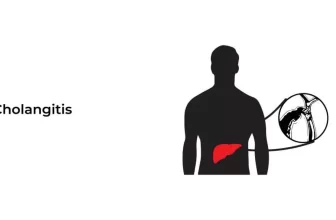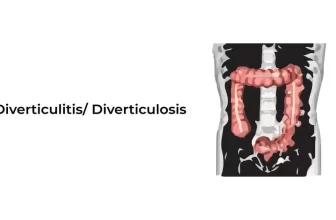Microorganisms are a natural part of our everyday lives which are found in air, soil, water, and bodies. Many germs on and inside our bodies cause no harm to us—some of them even aid in keeping us healthy. However, a very small percentage of germs cause severe infections.
The word infection refers to the attack and duplication of microorganisms like bacteria, viruses, and parasites that are generally not present in the body. It may not generate signs and are subclinical or may produce clinically evident signs.
Infections might remain restricted or spread through the blood or lymphatic vessels to become systemic (body-wide). It does not include microbes that exist naturally in the human body. The bacteria typically found in the mouth and intestines are not infections.
What is Sepsis?
Asepsis is a condition in which your body reacts to an infection in an uncommonly extreme manner. It is also known as septicemia.
During sepsis, your immune system (which protects you from microbes) releases many chemicals into your bloodstream. These chemicals activate widespread swelling and may become the reason for organ damage. Clots reduce blood circulation to your limbs and internal organs, depriving them of oxygen and nutrients.
Is Sepsis a severe infection?
Yes, sepsis is a deadly and life-threatening infection. Most illnesses that cause sepsis are bacterial. Sepsis can also occur due to other infections, such as COVID-19, influenza, and fungi.
The symptoms of sepsis include fever, rapid heartbeat, and difficulty breathing, among others. Sepsis is a severe life-threatening medical condition that requires prompt medical attention. The symptoms of septic shock include a significant drop in blood pressure, organ failure, and widespread tissue damage. It is potentially fatal if left untreated.
Causes of Sepsis:
The utmost usual reason of sepsis is a bacterial infection. It can also be caused by various infections such as fungi, parasites, and viruses. Infection can occur in several spots throughout the body. The following are some standard sizes and kinds of infection that cause sepsis:
- The abdomen: Infections of the stomach include the appendix (appendicitis), bowel issues, abdominal cavity infections (peritonitis), and gallbladder or liver contamination.
- The Central Nervous System: Infection of the CNS such as the brain or spinal cord.
- The Lungs: Respiratory contamination such as pneumonia afflict the lungs.
- The Skin: In the skin, bacteria can go through bruises or skin inflammation or through the openings created by intravenous (IV) catheters (tubes injected into the body to receive fluids or drain them). Cellulitis (swelling of the skin’s connective tissue) can also cause sepsis.
- Urinary Tract Infection (UTI): Infections of the urinary tract occur more frequently when the sufferer uses a urinary catheter to drain urine.
Stages of Sepsis:
Sepsis occurs in three stages:
- Sepsis: When an infection invades to the bloodstream and causes swelling throughout the body.
- Severe Sepsis: The contamination and inflammation are powerful enough to affect your organs.
- Septic Shock: A complexity of sepsis occurs in septic shock that leads to a significant drop in blood pressure. It can cause several serious complications such as;
- Failure of various organs
- Respiratory or cardiovascular failure
- Strokes
- Death
Symptoms of various types of Sepsis:
If you experience any symptoms of sepsis, you should seek medical attention immediately. The earlier you seek treatment, the greater your chance of recovery.
Sepsis:
The signs and symptoms of sepsis may include:
- The presence of fever or chills
- Disorientation or confusion
- Trouble in breathing
- Low blood pressure or a fast heart rate
- Intense pain
- Excessive sweating
It is possible to get fallacy in identifying symptoms that are also found in other conditions such as pneumonia, COVID-19, or cancer. Furthermore, sepsis symptoms are complicated to identify in infants, children, and people with:
- Communication difficulties
- Learning disabilities
- Alzheimer’s
You should seek medical assistance as soon as possible if you suspect sepsis. A health professional can better assess the medical condition of the suspected patient.
Severe Sepsis:
Symptoms of severe sepsis include organ failure. A diagnosis of severe sepsis requires the presence of one or more of the following symptoms:
- Breathing problems
- Blue discoloration of the skin, particularly on the lips, fingers, and toes
- Chills
- Reduced urination
- Feeling dizzy
- Altered mental abilities
- Severe weakness (asthenia)
- Thrombocytopenia (low platelet count)
- Altered heart function
- Loss of consciousness
Septic Shock:
Sepsis can rapidly escalate into severe sepsis and septic shock. As the condition progresses, it becomes more life-threatening. Severe sepsis and septic shock can share symptoms such as painful breathing difficulties, acute confusion, and blue skin. Hypotension is another sign of septic shock.
Who is at risk of Sepsis?
Sepsis might afflict anyone, but individuals at higher risk may include;
- Those who are aged (over 65 years old) or very young or pregnant.
- Suffering from previous medical conditions or infections, like diabetes, lung disease, cancer, and renal disease.
- Individuals who have weak immune systems.
- Hospitalized individuals.
- Patients with extreme bruises, like extensive burns or wounds.
- Sufferers have catheters (IVs, catheters for the urinary system) or breathing tubes.
How is Sepsis diagnosed?
Sepsis may occur if a person has:
- High or low quantity of white blood cells
- Low platelet counts
- Diabetic ketoacidosis (too much acid in the blood)
- An infection in a blood culture
- Dysfunction of the kidneys or liver
Treatment of Sepsis:
Mostly, your healthcare provider will keep you in the hospital’s intensive care unit (ICU) to prevent contamination, maintain the normal functioning of your organs, and maintain your blood pressure. The extra oxygen and intravenous fluids can aid in the aforementioned goals.
Infections caused by bacteria may be treated earlier by broad-spectrum antibiotics. Once your healthcare provider diagnoses the causes of your sepsis, they can prescribe treatment that hits the specific organism. Physicians frequently suggest vasopressors (which narrow your blood vessels) to reduce blood pressure. It is also possible to obtain corticosteroids to combat swelling or insulin to control your blood sugar levels.
If your condition is severe, you may require other treatment, such as a breathing machine or renal dialysis. Likewise, you may require surgery to remove contamination in some cases.
Complications in Sepsis:
Sepsis symptoms can vary, which are more likely to cause complications. Among these complications are:
- Thrombosis
- High risk of infection
- Gangrene (tissues death)
- Damage to organs
- Organ failure, particularly renal, cardiac, and pulmonary
Sepsis can be fatal in severe cases. According to a review published in 2020, the mortality rate for sepsis after 90 days is 32.2%, and septic shock has 38.5 percent after 90 days.
Preventions:
Taking steps to stop the spread of contamination can lessen your risk of sepsis. With the current COVID-19 pandemic, this is more important than ever before.
COVID-19 infections can cause symptoms like those of sepsis. The risk of developing another infection increases if you contract COVID-19.
Taking the following precautions will help prevent both COVID-19 and other conditions:
- Ensure that you are updated with your vaccinations against COVID-19, influenza, pneumonia, and other common infections.
- Avoid contact with individuals outside your household.
- Avoid unnecessary travel and activities and keep a safe distance of six feet from strangers.
- Ensure that you wear a mask to protect yourself and others against respiratory infections. You must wear a mask, especially when entering public indoor spaces, such as grocery stores and movie theaters.
- Maintain proper hygiene. You will prevent infection by regularly practicing adequate wound care, handwashing, and bathing.
- Seek immediate medical attention if you develop symptoms of contamination. Every minute of your life counts when it comes to treating sepsis. The soon you get treatment, the better the outcome.
References:
- https://www.webmd.com/a-to-z-guides/sepsis-septicemia-blood-infection retrieved on April 13, 2022.
- https://www.healthline.com/health/sepsis#definition retrieved on April 13, 2022.
- https://my.clevelandclinic.org/health/diseases/12361-sepsis retrieved on April 13, 2022.







